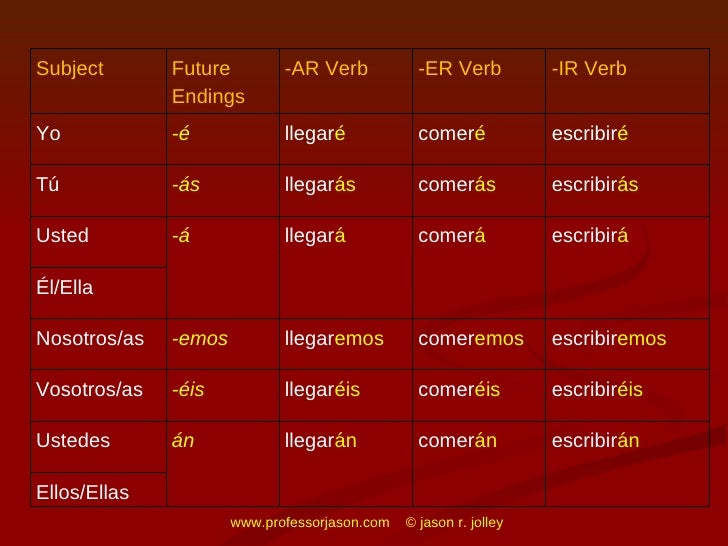

(Remember that with regular verbs in the future tense, the ending is added on to the infinitive. The ones that are irregular will use a different stem, but the endings added on will still be the regular endings for the future tense. ¿Me quieres esperar un momento? ( Will you wait for me a moment, please?).įinally, remember that there is another future tense called FUTURO IMPERFECTO O COMPUESTO. There are not very many verbs that are irregular in the future tense. In Spanish you don’t use the future tense to say this you use the verb querer( want) instead: In English, you sometimes use will with the meaning of being willing to rather than simply to express the future. ❽ónde estará Mercedes ahora? (Where Mercedes will be now?)ģ. Gustavo tendrá 40 años, su hermana tiene 42 y es mayor (Gustavo will be 30 years old, his sister is 42 and she is a bit older). You can use the simple future tense in Spanish to make a guess about the present or to make a hypothetical question. Si terminas de trabajar pronto podremos ir al cine (If you finish working son we will go to the cinema).Ģ. There are six lessons, and the skill teaches another form. In this Spanish Difficult Review quiz you will be challenged to determine. Te prometo que iremos de vacaciones pronto (I promise to you that we will go on holidays soon). Verbs:Future is the fifty-second skill (assuming read left to right) in the Spanish language tree. is all about how the past, present and future tenses affect Spanish verbs.

1.In general, we are going to use the simple future tense in Spanish to say what we think it will happen, but also to express an intention or a probability, to make a promise, also to talk about events that will probably happen depending on conditions:Ĭreo que Fernando y Marta se casarán el año que viene (I think Fernando and Martha will get married next year).


 0 kommentar(er)
0 kommentar(er)
